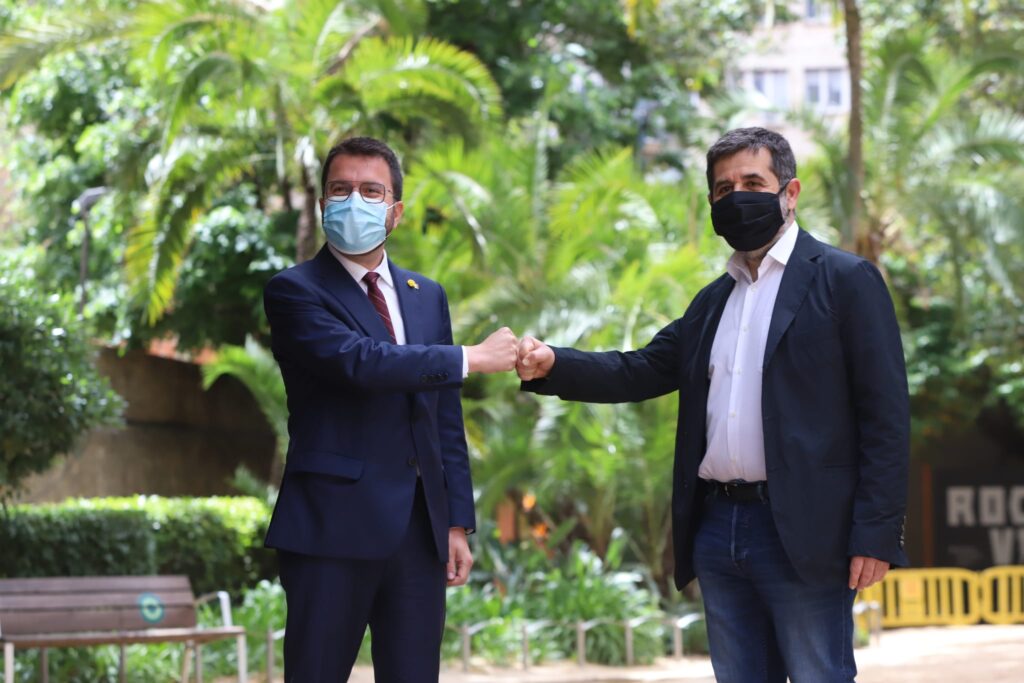17.05.2021 - 18:27
|
Actualització: 17.05.2021 - 20:27
Catalonia’s two main pro-independence parties, Esquerra Republicana and Junts per Catalunya, sealed a coalition deal on Monday morning and presented it hours later. They have agreed to share control of the government again, which from now on will be led by left-wing Esquerra’s Pere Aragonès, and have thus avoided a snap election.
Both Aragonès and Junts’ secretary general, Jordi Sànchez, appeared before the media in Barcelona to affirm that the new government will be “united” and will leave behind years of discrepancies. The person who will become Catalonia’s leader in the coming days, Pere Aragonès, said his cabinet will seek transformation in four main domains: socially, environmentally, in terms of women’s rights, as well as a “democratic revolution.”
The latter refers to the road to independence, which will also be a priority since 52% of the ballots in the February 14 election were for parties in favor of splitting with Spain. Both parties agreed on the need to achieve “an amnesty and self-determination via dialogue and negotiations as well as civic and pacific confrontation” with Spain. “It is important to take advantage of the independence movement garnering over 50% of the vote,” said Aragonès.
7 + 7 ministries
“There will be no justice in this country until repression, exile, and prison sentences, as well as legal and administrative cases imposed by Spain’s repression, come to an end,” added Sànchez, who is currently serving a nine-year sentence for his role in the 2017 independence push. Junts per Catalunya members are expected to ratify the deal, as well as CUP, who have their own agreement with Esquerra as of late March.
The largest pro-independence parties have agreed on a government structure with 14 ministries, of which each party will manage seven, and of which seven will be led by women. These will include the newly-created Feminism and Climate Action departments.
Here’s the breakdown of the executive led by Pere Aragonès, a party that was last assumed this post after an election in the 1930s:
Ministries led by Esquerra
- Presidency: self-government, sport, public administrations, local councils, office to consider a universal income
- Interior: police, civil protection, firefighters, road safety
- Education: primary, secondary school system
- Feminism: Catalan Institute for Women, equality policies, Civil and Political Rights office
- Culture: Catalan language and culture, heritage, libraries
- Business and labor: business, competition and work policies
- Climate Action: environment, sustainability, power, water, food, waste policies, as well as the current agriculture, fishing and livestock ministry
Ministries led by Junts (will include vice president)
- Economy: budget, Catalonia-managed taxes, finance, treasury, gambling
- Health: health centers and professionals
- Foreign Affairs: foreign action, relationship with EU and Mediterranean, cooperation, transparency, open data
- Justice: justice, historical memory, religion, prisons
- Digital Policies: digital policies, infrastructures, mobility, urban agenda
- Research and Universities: research (also including health research), universities
- Social Rights: social affairs, rights of children, teens and youth


